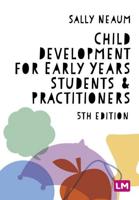Publisher's Synopsis
Excerpt from Announcement of Summer Courses: Eighth Year; July 7, 1902-August 15, 1902
Si. The aim of this course is to lead the student to View society as a vast and complex organism, to study in a general way its structure and functions, and to see the relation of education to the other great divisions of social activity.
Some of the chief topics treated are The need of a social science, especially from the teacher's point of View. Preparation for such a science. The school a social institution. The organic concept of society. In what sense may the school be called an organism? The physical environment of society. Importance of the sociological point of view in the teaching of geography. Classification of the population according to race, sex, age, type of mind, etcf The family as the primary social group, its history, functions, and pathology. Social aggregates. The school as a social communicating apparatus. Its relation to the other communicating channels, as the press, public platform, etc. Social psychology. Social reforms. Care of the abnormal, dependent, and delinquent classes, with special reference to the treatment of children.
Throughout the course the observation of the student's own social environment is stimulated, and history, as well as current events, is largely drawn upon for illustrations, with a View to giving the student a clear and concrete grasp of the fundamental principles of the science.
About the Publisher
Forgotten Books publishes hundreds of thousands of rare and classic books. Find more at www.forgottenbooks.com
This book is a reproduction of an important historical work. Forgotten Books uses state-of-the-art technology to digitally reconstruct the work, preserving the original format whilst repairing imperfections present in the aged copy. In rare cases, an imperfection in the original, such as a blemish or missing page, may be replicated in our edition. We do, however, repair the vast majority of imperfections successfully; any imperfections that remain are intentionally left to preserve the state of such historical works.










